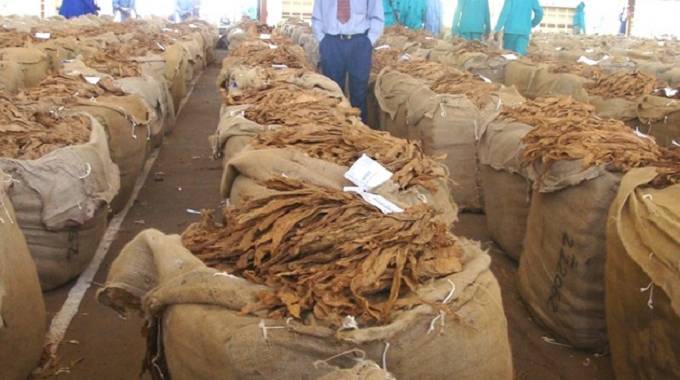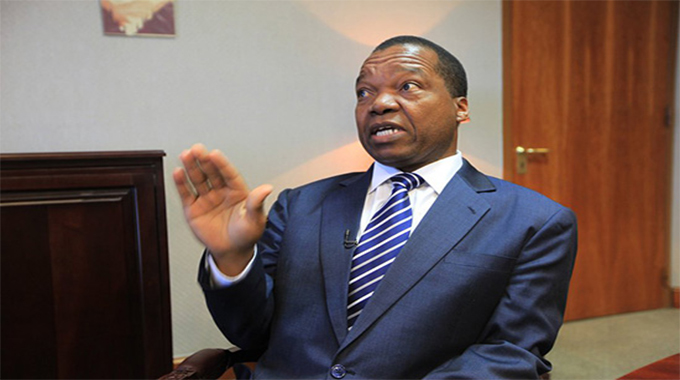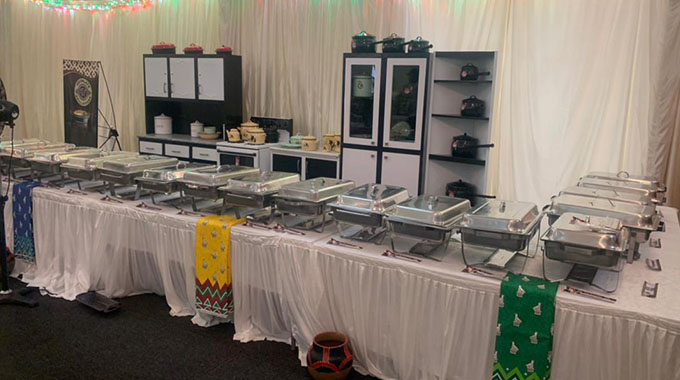EDITORIAL COMMENT:Hopes high as tobacco selling season begins

The tobacco marketing season begins on Wednesday having been delayed by about a month because of the poor rainfall season.
Stakeholders in the industry decided to give growers more time to tend and cure their crop, processes that had not been completed by last month given the erratic rains that were received in the 2018/19 agricultural season. Like the rest of the country, the tobacco growing provinces — Mashonaland West, Mashonaland Central, Mashonaland East and Manicaland – did not receive good rains over the past five or so months. This has resulted in crop failure in most parts of the country, especially in Masvingo, southern Midlands, Matabeleland South and Matabeleland North, the extent of which would be known more accurately after the ongoing crop assessment exercise.
However, since the tobacco growing provinces are generally wetter than the southern half of the country, farmers in those areas would be able to reap something, including the golden leaf.
The Tobacco Industry and Marketing Board (TIMB) announced recently that the three auction floors will open for the 2019 marketing season on Wednesday while contract floors will open a day later.
As is the norm, the TIMB and the Ministry Lands, Agriculture, Water, Climate and Rural Resettlement will select an auction floor at which the official opening ceremony would be held. The Minister, Chief Air Marshal Perrance Shiri (Rtd), is expected to perform the honours at the event at one of the three auction floors – Boka Tobacco Auction Floor, Tobacco Sales Floor or Premier Tobacco Auction Floor.
This is a big moment for our country, one that all of us wait for every year because tobacco is the nation’s biggest foreign currency earner. For the next five to six months national attention would be on the three auction floors and the contract floors as farmers, economists, the media, politicians and ordinary Zimbabweans watch the prices to be offered, the volume of tobacco to be sold, the quality of the crop and so on.
Our agro-based economy revolves around tobacco. If tobacco fails, the whole economy fails; if tobacco does well, the whole economy does well. Indeed, the crop is not called the golden leaf for nothing; its growers are not called the geese that lay the golden egg for nothing.
That the weather has been uncharitable this growing season has already been addressed. Plantings were affected because the effective rains fell very late in the tobacco-growing areas like elsewhere countrywide. This may have affected the size of the land put under the crop.
Since the rains were poor from planting stage, the growth of the crop may have been hampered a little too. As a result, farmers are highly unlikely to harvest anything close to the 249 million kilogrammes they did last year. This was the biggest harvest in the country since Father Richartz; a Jesuit priest commercially grew tobacco at Chishawasha Mission, Mashonaland East Province for the first time in this country in 1897.
This year, TIMB chief executive officer, Dr Andrew Matibiri said recently, farmers should produce about 200 million kilogrammes of the crop. The situation was dire in Manicaland and Mashonaland East, he said, though not as bad as in Mashonaland Central and Mashonaland West. In our view, however, and in the context of the difficult growing conditions, 200 million kilogrammes would be a huge harvest.
There is likelihood that the difficult growing conditions could have adversely impacted on the quality of the crop. In fact, it is expected that where and when rains fall erratically and in smaller amounts than the ideal, any crop tends to be poorer than when optimum rains fall. Be that as it may, we are optimistic that farmers are delivering a crop of decent quality this term, for a handsome return.
Also, we hope that buyers will pay farmers well and fairly this marketing season. We have had cases where growers protested at the auction floors, protesting against what they regarded as unfair pricing and low prices for their crop. Such occurrences are disruptive and must not be associated with a crop so close to the hearts of Zimbabweans; a crop which is the lynchpin of our economy. Therefore, all of us desire a flawless next five to six months with growers being paid fairly for their hard work and buyers getting value for their money.
Modalities for payment for tobacco to be sold have been worked out already. According to the Reserve Bank of Zimbabwe and TIMB, producers will this year retain 50 percent of their sales in United States dollars with the other half being credited into their RTGS$ accounts.
“The Reserve Bank of Zimbabwe has put in place measures to ensure that tobacco growers who are going to sell their tobacco during the 2019 marketing season, are paid within the shortest possible time,” said the RBZ and TIMB in a joint statement last week.
“Tobacco growers shall be paid 50 percent, after deduction of the US$ loans, in United States dollar, and the proceeds shall be deposited in the growers’ Nostro FCA bank accounts.
“The balance of 50 percent of the net sale proceeds shall be credited into the grower RTGS$ bank account. Small-scale tobacco growers — with two hectares and below of the crop — are entitled to retain sales proceeds in the Nostro FCA for an indefinite period as free funds.”
This is certainly good news for farmers. Collectively, they are the biggest foreign currency earners for the economy, as such there is no reason why the Government would not reward them for earning US$ for the country when gold producers and other exporters are already banking the greenback. Many businesses in the country, including suppliers of tobacco inputs, are charging in foreign currency so farmers will be spared the trouble of running around with their RTGS dollars to buy hard currency to be able to buy the inputs in preparation for the next growing season.











Comments